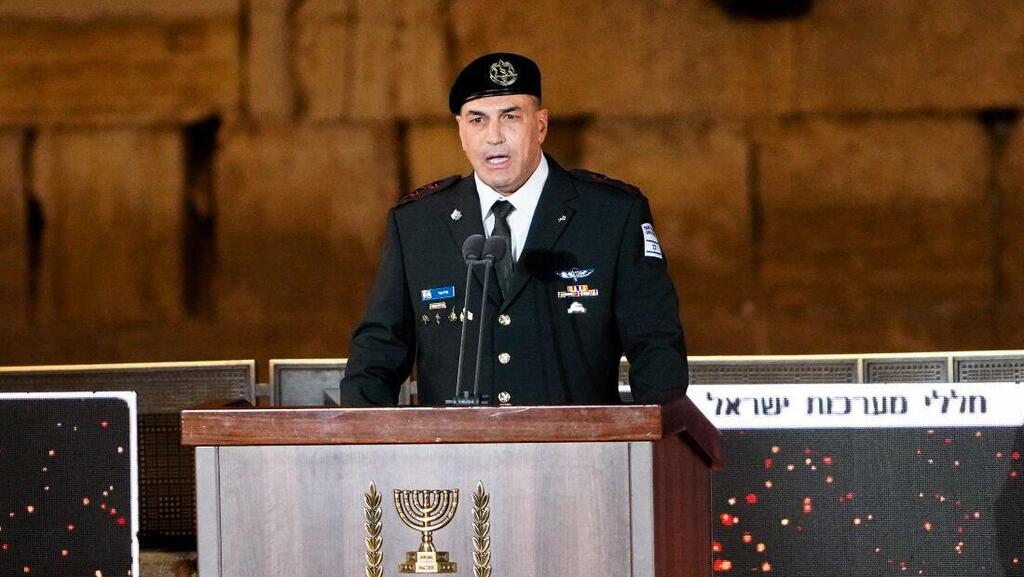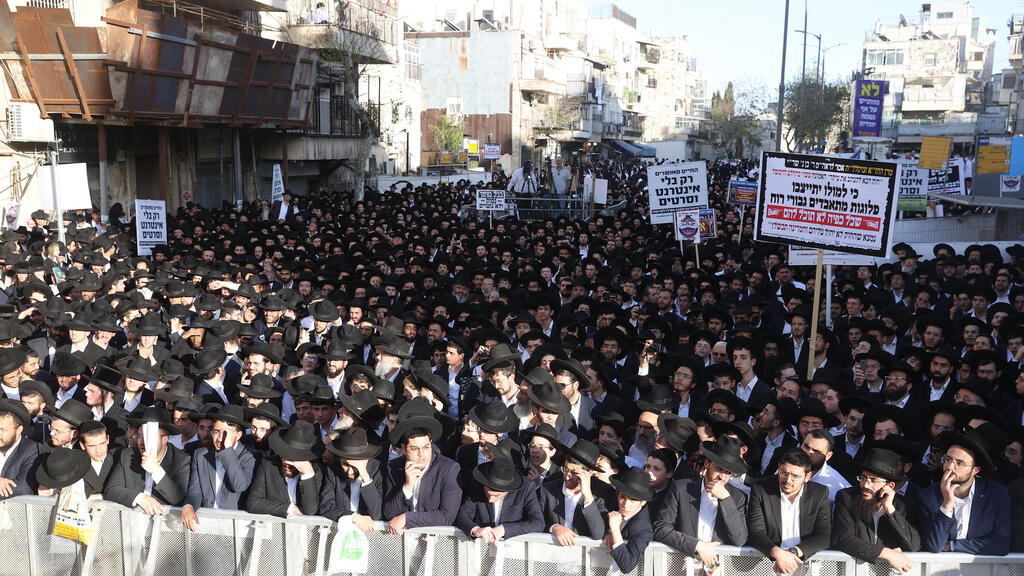IDF Chief of Staff Eyal Zamir has instructed the military's Manpower Directorate to expand the issuance of draft notices to Haredi men, citing growing strain on military personnel and as plans move forward for an expanded ground operation in Gaza. The directive includes organizational measures and increased capacity for integrating Haredi recruits into the military.
In recent days, senior military officials have hinted at a broader rollout of draft notices. During a briefing near Zikim in southern Israel, IDF Spokesperson Brig. Gen. Effie Defrin stated: “The IDF sends draft notices to every 16-year-old in Israel. We will continue working toward drafting all citizens—including Haredim.”
According to the directive, all Israeli males, regardless of religious affiliation, will receive a preliminary draft notice at age 16-and-a-half, followed by a second notice. Those who fail to report will be classified as draft evaders. Under new procedures, once a person is declared a deserter, criminal sanctions apply—including travel restrictions and arrest upon entry or exit from Israel for prosecution.
The move is expected to intensify pressure on Haredi political leaders to advance legislation addressing military service exemptions. Without such a law, thousands of Haredi young men would quickly be classified as criminals. In response, Haredi parties have warned of potential coalition fallout. A senior United Torah Judaism official told Ynet: “These draft orders are merely symbolic, intended to divide the nation.”
The official continued, “Everyone knows these orders have no real practical effect. Not a single Haredi will enlist against the will of his rabbis,” and criticized Defense Minister Israel Katz: “It’s unfortunate he cannot manage this issue responsibly. He’s only fanning the flames and worsening the situation.”
Blockade of a central intersection in Jerusalem, Haredi demonstration against conscription
(צילום: עידן בלומהוף)
Meanwhile, Deputy Agriculture Minister Moshe Abutbul of the Shas party warned on Kol Berama radio that his party is prepared to follow through on its threats: “We keep our promises, and the government should be worried. There was enough time to prepare. This summer will be a hot one. This foot-dragging on the draft law is unacceptable. If they don’t get it—fine, the coalition collapses. I don’t recommend testing us.”
In contrast, the reservist advocacy group Brothers in Arms welcomed the chief of staff’s announcement but said: “We’ve heard enough promises and statements. We’ll wait to see real action. Israelis have learned that the gap between declarations and execution is vast. We demand meaningful penalties for draft dodgers, just as any other citizen would face. A young man from Modi’in Illit cannot be more privileged than one from Modi’in.”
The reservists' group Shoulder to Shoulder also expressed support: “We back the chief of staff and his directive to significantly broaden the recruitment base.”
Uri Keidar, CEO of the secular advocacy group Israel Hofsheet (Be Free Israel), added: “It’s good that Chief of Staff Zamir understands that there’s no moral justification for sending tens of thousands of reservists into yet another combat round while tens of thousands of Haredim continue to shirk service without consequences. If Defense Minister Katz tries to block this move, he’ll lose what little public legitimacy he has left.”
In a recent Knesset session, the head of logistical support in the IDF said the military currently needs 12,000 soldiers—7,000 of them combat troops. There is a shortfall of 25 active reserve battalions. The army aims to cap reserve duty at 42 days annually, down from the current average of 70.
According to the latest figures from three weeks ago, of the first 10,000 draft notices sent to Haredi youth, only 205 enlisted. About 900 have begun the recruitment and screening process. Thousands more were classified as draft evaders or had arrest warrants issued. The IDF has been adjusting its approach, focusing on communities with lower resistance to enlistment. Still, Haredi sources predict even lower compliance now that notices are being sent to more devout communities where military service is entirely off the table.
At the same time, the three main newspapers affiliated with the Haredi factions of United Torah Judaism—Yated Ne’eman, HaModia and HaMevaser—published identical front-page messages condemning the judiciary amid fears of forced conscription: “The harvest is past, the summer is ended, and we are not saved. The judicial authorities are tightening their decrees and threatening to draft yeshiva students, God forbid. We cannot remain passive—every option is on the table on this matter, which is the apple of our eye and the essence of our soul.”
The papers quoted the emotional appeal of Rabbi Dov Landau, the leading Lithuanian Haredi rabbi, who told a gathering of yeshiva heads at his home that he plans to travel abroad to raise funds for Torah institutions.
“Once again, we face the collapse of the budget for yeshivot and kollels due to these decrees. We must go to the U.S. and partner with the righteous donors of the World Torah Fund,” he said. “It is my personal duty to embark on this mission for the Torah world despite the enormous difficulty. May God help us, and may this decree be swiftly nullified.”





